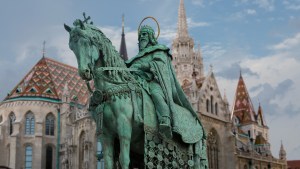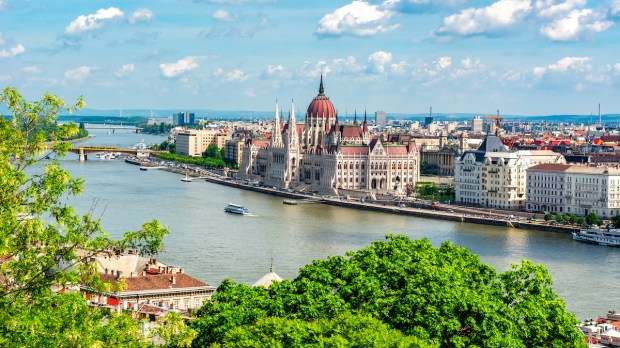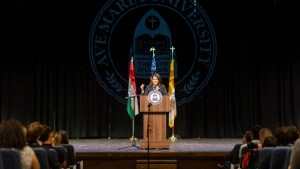Pope Francis’ trip to Hungary, from April 28 to 30, 2023, is part of a process of rapprochement with the government of Budapest, within the global situation created by the war in Ukraine.
The Pope and Prime Minister Viktor Orbán have long seemed to embody radically opposed perspectives, especially on the issue of welcoming migrants.
However, strong convergences do link Rome and Budapest in their response to the Russian offensive in Ukraine.
The promotion of the family and of having children, as well as support for persecuted Christians in the Middle East, are also points of shared interest for Hungarian and Papal diplomacy.
“When I arrived here as ambassador, Hungary and the Holy See were seen as strongly opposed, especially on the issue of migrants and LGBT” issues, admits Hungarian Ambassador Eduard Habsburg. He arrived in Rome in 2015, a year marked by a massive influx of migrants into European Union countries. However, he considers that this perception reflects a “mistaken view,” and that recent events have shown the generosity of Hungary.
Immigration
Since the beginning of the Russian offensive in Ukraine, the welcoming of one million Ukrainian refugees — 10% of the population of Hungary — has represented a considerable effort for the country. “We welcome refugees who apply for asylum, but not illegal migrants who arrive without passports,” says Habsburg. “In the summer of 2015, there were 10,000 arrivals per day, and that was not acceptable. There are laws, rules, and agreements that must be respected,” insists the ambassador.
In 2015, the Pope said that it is “violence to raise walls and barriers to stop those who seek havens of peace. It is violence to reject those who flee from inhumane conditions, with hope of a better future.” The Pontiff, who is very attentive to the respect of migrants’ rights, has explained that there should not be “first-class refugees” and others who are “second-class,” as he stated in an interview in 2022 and also since. Nevertheless, the war in Ukraine has profoundly changed the Pope’s view of the Hungarian government’s policies.
War in Ukraine and seeking peace through negotiation
The war in Ukraine has resulted in massive humanitarian support from Hungary to other countries in the region. However, the Hungarian government has been more distant in its relationship with Kiev than its neighbors, especially Poland, which is heavily involved in military support for Ukraine.
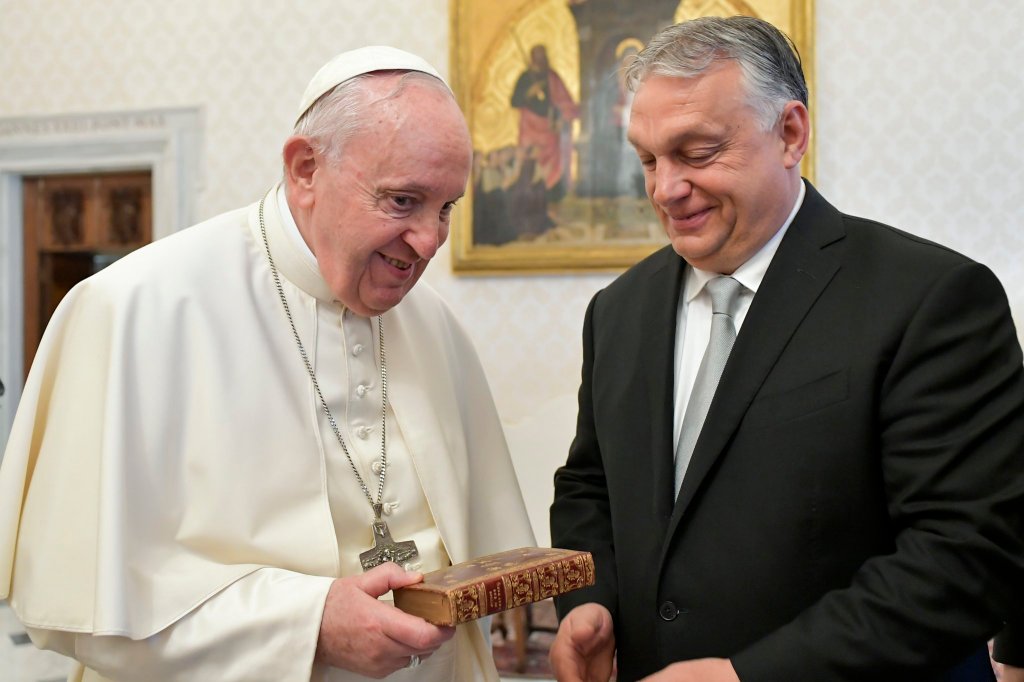
Conversely, Hungarian Prime Minister Viktor Orbán is the only European Union leader to have sent signals of closeness to Russia after the start of its offensive in Ukraine. He was received by Vladimir Putin in the Kremlin shortly before the invasion began in February 2022, and also visited Moscow in September 2022 for the funeral of the last Soviet leader, Mikhail Gorbachev. While other European countries criticize him for going it alone and, in particular, for slowing down the enlargement of NATO to include Finland and Sweden, his contrarian stance is relatively close to that of Pope Francis. The Pontiff constantly denounces the re-armament of Europe as a step towards a larger-scale war.
On the eve of his departure for Budapest, Pope Francis received Ukrainian Prime Minister Denys Shmyhal and once again expressed his position in a tweet published on April 24: “Using weapons to resolve conflicts is a sign of weakness and fragility. Negotiation, proceeding in mediation, and conciliation require courage.” Although his pacifism offends many Ukrainians and Poles, it is in line with the position of Hungary, which is very reserved about the support given by the West to the government in Kiev.
Supporting Eastern Christians
On the ecclesial level, Hungary is also a traditional point of contact with Russian Orthodoxy. The presence in Budapest of Metropolitan Hilarion, former head of external relations of the Moscow Patriarchate and now Metropolitan of Hungary, could provide the Pope with opportunities for dialogue, even if no meeting in this sense is included in the official agenda of the trip.
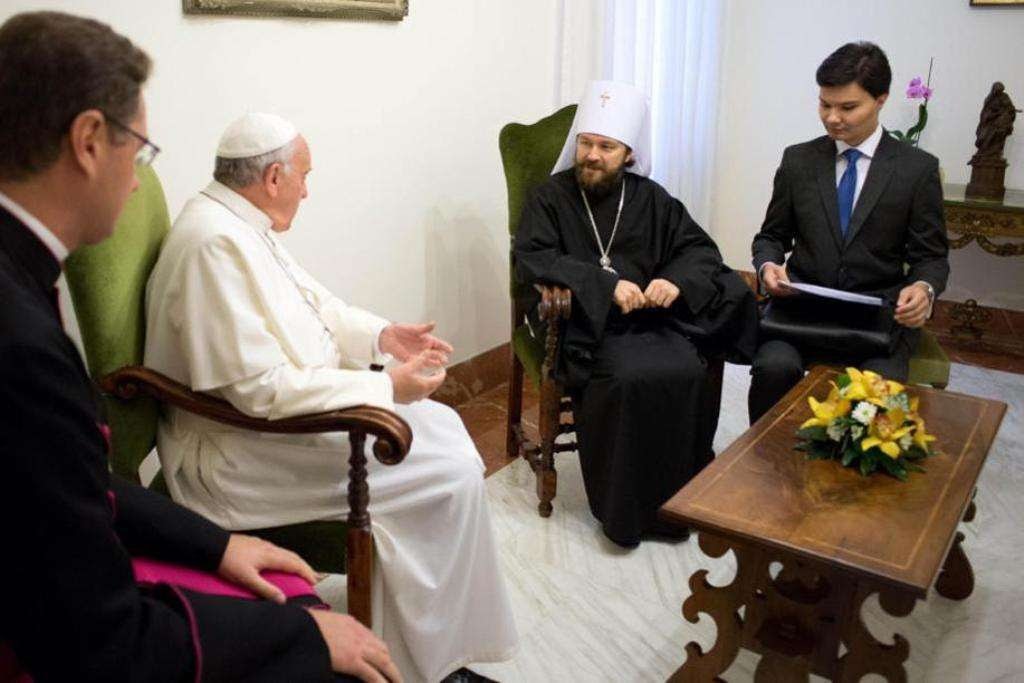
Support for persecuted Christians is also a priority for the Hungarian government, which is very involved in supporting Christians in Iraq. While many international pressures are pushing Eastern Christians to join the West, Hungary — at both the governmental and ecclesial levels — is committed to supporting local communities in order to encourage the continuity of the Christian presence there.
After the Islamic State offensive in the Nineveh Plain in 2014, the Church of Hungary contributed to the reconstruction of a village and several schools in Erbil, Iraqi Kurdistan. This policy is appreciated by the Eastern patriarchs, who are worried about their communities dispersing to Europe, Canada, the United States, and Australia.
The defense of the family
LGBT issues are also a point of convergence between Hungary and the Vatican. “We are protecting our children from ideologies. It is not about attacking homosexuals, but about defending the traditional family of ‘father, mother, and children,’” says Habsburg.
During his first visit to Budapest in September 2021, the Pope reiterated that this model “is the only true family,” the ambassador recalls. “So we are in full agreement with him. He has gestures of compassion for people who have a homosexual orientation, but he clearly denounces the ideology of gender” through his criticism of “ideological colonizations,” explains Habsburg.
This policy of defense of the family is embodied in particular by the President of the Republic, Katalin Novák, elected in 2022, who is a former Minister of Family Affairs in the Orbán government. The President, whose constitutional prerogatives are limited, essentially plays a role of international representation, embodying a more diplomatic approach than the Prime Minister, known for his taste for provocation.
After her election in the spring of 2022, she reserved one of her first official visits for Poland, a country with which Hungary is in full agreement on family issues, but in divergence on the question of support for Ukraine. Received at the Vatican on August 25, 2022, this mother of three children had then highlighted the convergences between Rome and Budapest on the safeguarding of peace in Europe and the promotion of the family.
“Our government supports families and having children, and the Pope knows it,” says Habsburg. The ambassador himself is the father of six children and was congratulated as such by the Pope during an audience with the ambassadors of the European Union in 2017, during which the Pope was saddened by the lack of births in Europe.
The Argentine Pontiff has many times expressed his worry about the “demographic winter” that darkens the future prospects of the Old Continent.
